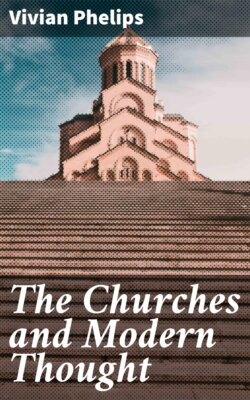Читать книгу The Churches and Modern Thought - Vivian Phelips - Страница 24
На сайте Литреса книга снята с продажи.
THE INCARNATION.
ОглавлениеThere remains the miracle of the Virgin-birth. That this is under dispute among Christian theologians is notorious, and the controversy has but served to show with ever-increasing clearness how untrustworthy is the evidence for this miracle. Christian Biblical experts inform us that it belongs to the latest strata of the New Testament tradition, and that no trace of the story can be found before 120 A.D. In other words, that it is an obvious interpolation in St. Matthew and St. Luke. Adolf Harnack, the learned Professor of Church History in the University of Berlin, is looked upon, even by the orthodox, as one of our greatest living Biblical scholars, and we learn from him that we must disregard the history of Jesus’ birth given in these two Gospels; for not only is it untrustworthy, but “the evangelists themselves never refer to it, nor make Jesus Himself refer to His antecedents. On the contrary, they tell us that Jesus’ mother and His brethren were completely surprised at His coming forward, and did not know what to make of it. Paul, too, is silent; so that we can be sure that the oldest tradition knew nothing of any stories of Jesus’ birth.”20
“Moral fitness” appears to be the only argument that we can fall back upon, and this is now the apologists’ last stronghold. If they belong to the Church of England, they should remember that it was this identical line of reasoning that gave rise to the “pious opinion” that the Mother of Christ had herself been miraculously preserved from all taint of original sin from the first moment of her conception in the womb of her mother. As Bernard of Clairvaux vigorously argued (in 1140 A.D.): “On the same principle you would be obliged to hold that the conception of her ancestors, in an ascending line, was also a holy one, since otherwise she would not have descended from them worthily.” Yet, in spite of the absurdity, the doctrine of the Immaculate Conception was formally defined, as a dogma binding on the acceptance of all the faithful, by the bull Ineffabilis Deus (December 8th, 1854). Certainly there is a moral fitness in the Virgin-birth of the Son of God, and it is also fit that His mother should have been immaculately conceived; and those who hold to the one doctrine may well hold to the other.
Some apologists appear almost in despair of a continuance of belief in this dogma. The learned Dr. Sanday says we ought to regard the Virgin-birth “as one of those hidden mysteries which, whether or not God wills that we should believe them now, He has, at all events, willed that men should believe in times past.” Is not this tantamount to giving up belief in the Virgin-birth?
